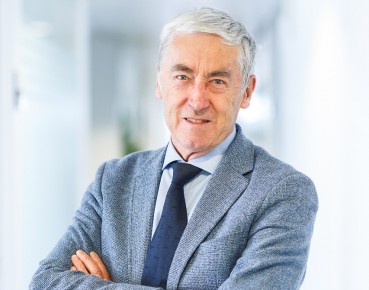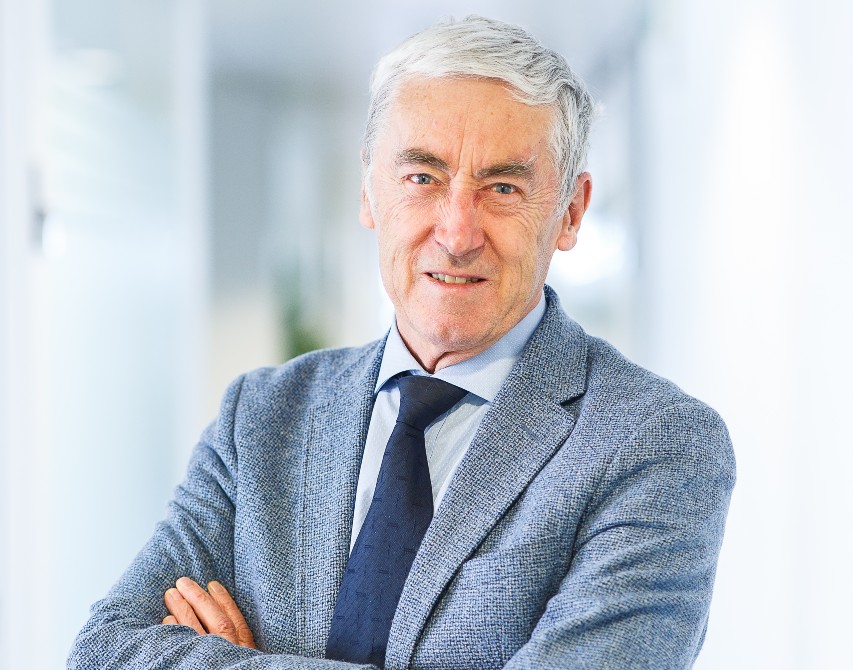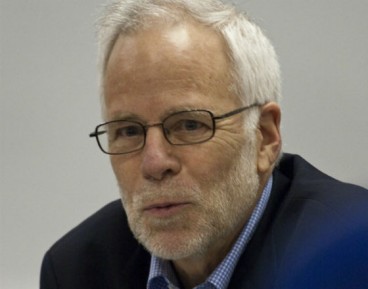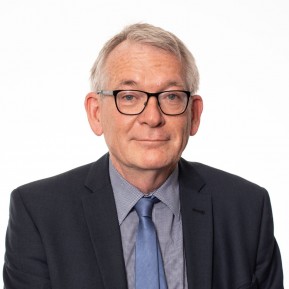Tydzień w gospodarce
Category: Trendy gospodarcze
Economist, prof. London School of Economics and former member of the Belgian parliament

Prof. Paul De Grauwe (Foto the author’s archive)
Even if you add those two countries together, you still have a small country. Russia’s GDP represents barely 10% of the EU’s GDP. Russia is an economic dwarf in Europe.
Can such a small country win an intense war against a country that is resisting tooth and nail and that will have to be occupied for a long time? My answer is no. Although Russia can (and does) generate immense suffering and destruction in Ukraine, it does not have the resources to wage a large and protracted war in that country.
To win such a war, Russia will have to drastically increase its military spending. Russia today spends about $62 billion (about 4% of its GDP) on the military. That’s 8% of US military spending. Such a military budget will not be sufficient to continue waging an intense and protracted war. More military spending will have to be made. But military spending is economically wasted. The tanks and combat aircraft that must be produced to wage the war are investments that are economically useless. This contrasts with investments in machines (and other production factors) that make it possible to produce more in the future. Tanks and fighters will not allow one extra ruble of production in the future. They will, however, crowd out productive investment. The economically small country that Russia is today will therefore become even smaller in the future.
Instead of cutting back on productive investment, the Russian dictator could cut consumption in Russia to make way for more military spending. The fact that Russia has such a small GDP while the country has 146 million inhabitants (more than 5 times the population of Belgium plus the Netherlands) hides the fact that most Russians live in relative poverty. Putin will have to push them even further into poverty to realize his megalomaniac ambitions. It is doubtful whether this policy will strengthen his dictatorship.
There are other effects to be expected from a policy that pushes a country into a war economy. The incomes earned in the war industry will not be able to be spent on consumer goods because these are in short supply. As a result, inflation will rise sharply. The temptation will be great to introduce price controls. The result is known: rationing and scarcity. Paradoxically, this will fulfill Putin’s ambition: a return to the Soviet Union with its long waiting lines in front of the shops.
Russia is economically a small country; it is also an underdeveloped country. It has a production structure of a typical African country. The country mainly exports raw materials and energy (gas and crude oil). They make up 80% of Russian exports. Imports are concentrated in manufacturing products (machinery, transport equipment, electronics, chemicals, pharmaceuticals). Those products represent more than two thirds of total Russian imports.
The problem with such an underdeveloped country’s economic structure is twofold. First, much of Russia’s industry depends on imports of hi-tech goods and components. Without these, much of the military industry in Russia gets stuck. This makes Russia vulnerable to Western trade sanctions that prevent Russia from importing key components for its military industry. All this makes a protracted conventional war impossible.
The underdeveloped nature of Russia’s economic structure creates a second source of fragility. Russia’s export earnings being concentrated in commodities and energy are subject to large fluctuations. Today, energy and commodity prices are very high. That has allowed Russia to pile up more than $600 billion in international reserves (dollars, euros, pounds, gold). It has also boosted the budgetary revenues of the Russian government. But those are temporary effects. They have created the illusion that Russia has the resources to wage a protracted war.
About half of these international reserves are now being frozen by the punitive measures imposed by Western countries. This also makes clear how dependent an underdeveloped country is on the Western powers that control the international financial system. The vast stock of international reserves now available to Russia is not a source of power, but its Achilles heel.
Moreover, these high commodity prices are a temporary phenomenon. “What goes up must come down”. Gas prices, oil prices and commodity prices will fall again and will shrink the resources available to the Russian government and make a protracted conventional war impossible.
While Russia is a small, underdeveloped, and fragile economy, it retains two important sources of power. Those same hydrocarbon and commodity exports that leave Russia’s budget vulnerable to price shocks give the country significant political leverage over importing countries, including countries across Europe. If Russia cut off gas deliveries to Europe today, some countries would suffer mightily in the short term. For example, Russian gas accounted for about 65% of all Germany’s gas imports, and 45% of Italy’s, in 2020.
In the longer run, however, Russia would suffer the most from such a move. Already, the war in Ukraine has spurred the EU to unveil a plan to end its dependence on Russian gas, both by finding new sources of imports and advancing the clean-energy transition. With that, the main source of Russia’s foreign revenues will be drastically diminished.
The second source of Russian power is, of course, the world’s largest nuclear arsenal. Nuclear weapons would not deliver victory in a conventional war, but they could destroy a country in the blink of an eye. This brings us to a terrifying question: What will Putin do when he realizes that he cannot win his war in Ukraine by conventional means?
Paul De Grauwe, economist, prof. London School of Economics and former member of the Belgian parliament.
The article is published in a series of articles in Obserwator Finansowy written by governors of central banks and distinguished economists. The series is under the special patronage of the Governor of Narodowy Bank Polski, Professor Adam Glapiński. The authors of the articles have agreed to waive their fees for writing the texts, and in exchange NBP shall donate the amount equivalent to the fees onto the account of the National Bank of Ukraine in order to support the NBU during the war. Below is a foreword by the Governor of NBP to the whole series:
On 24 February a huge tragedy occurred, in the face of which it is impossible to simply move on as if nothing had happened.
Nobody can remain indifferent to the misfortune that has befallen the Ukrainian nation.
All of us are shocked by the press reports, and particularly by what we see in the mass media.
Fighting Ukraine is not only its brave soldiers, but also an army of thousands of civilians trying to preserve normality in a country stricken by Russian aggression.
This army includes the staff of the National Bank of Ukraine, with whom NBP is in constant contact.
Aware of our Ukrainian colleagues’ needs, we have invited several central bank governors and eminent economists to share their knowledge on the economic processes taking place around the world.
It is rare for such a distinguished group of authors to feature in Obserwator Finansowy, which is published by NBP. It is also worth underlining that all the authors have waived the fees for their articles in order to donate them to meet the needs of our colleagues working in the National Bank of Ukraine.
I believe that you will find the series of these articles interesting, especially since they not only share the knowledge and experience of their authors, but also express goodwill towards the war-afflicted NBU.
Prof. Adam Glapiński, Governor of NBP



